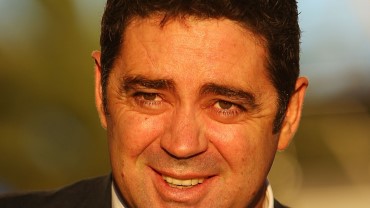Mental health problems - a phrase that’s begun to get some traction in the media in the last few years as more and more high profile Australians begin to talk about their struggles and seek help. And it’s one that has been used numerous times in the last week when referring to media personality Garry Lyon and his situation with Billy Brownless.
It’s a narrative that has dominated the news headlines and has seen many taking sides, shaking heads or extending support to each of the men involved.
It’s been a thought provoking story and one that doesn’t seem to be slowing down anytime soon. It’s got a lot of people talking and prominent media and sporting personalities have weighed in with their opinions.
The fact that we can have a conversation about mental health so openly is a good thing.
Getting blokes to talk about mental health has huge benefits. It’s healthy and it reduces the risk of suicide. And with around three-quarters of all deaths by suicide being men, we need to do everything we can to protect men from this fate.
It’s also important we’re clear on one thing - depression is an illness and it needs to be treated this way.
Garry, and the many like him who have disclosed mental health problems in the past, need to seek treatment as they would another disease – whether that’s through counselling or visiting a doctor.
At the Movember Foundation, we recognise men need to feel supported to be able to open up about issues such as depression, and to know when they need to take action for their mental or physical wellbeing.
The original motivation behind growing a moustache for men’s health was to spark a conversation, to get blokes talking about and taking action when it comes to their own health.
With no apparently encouragement from himself, the fact that Garry Lyon’s mental health problems have been reported as an apparent justification for his behaviour is troubling. For one, it could potentially lead to other men being reluctant to open up about their mental state, if they too are going through similar health issues.
We want men to feel comfortable talking about their mental health.
The traditional notion of what it takes to be a ‘true blue Aussie bloke’ isn’t helping our men. Men are often taught they need to be ‘silent and bulletproof’ in order to be a man, which quite often stops them from admitting they may have a problem.
We know from the research that there are certain times in a man’s life they need extra support – such as when they become a father for the first time, the ‘middle years’ or when a relationship breaks down.
During these turbulent times, it’s important men feel connected to the people around them in order to talk about these significant life events, which will help protect them from poor mental health when times get tough.
While it’s great that a conversation about mental health is so prominent in the headlines, it’s the blurring of the Lyon and Brownless situation and the association of depression as an excuse for behaviour which is problematic.
We need to make sure that the conversation we’re having about mental health is the right one and the right message is being conveyed.
We need to send the right message to our sons, brothers, fathers and partners about opening up and talking about poor mental health, and ensuring they are supported when they do.
Most importantly, we need to rally around those in our lives who do open up about having a mental health problem – they’ve taken the most important step in recognising they need help and it’s up to us to make sure they get it to live a happy, healthy and long life.
If you or anyone you know is in distress and needs immediate support then please contact Lifeline on 13 11 14

22 February 2016
Mental health problems is a phrase that’s begun to get some traction in the media in the last few years as more and more high profile Australians begin to talk about their struggles and seek help.
The way we talk about mental health matters
3 MIN READ

.jpg)





